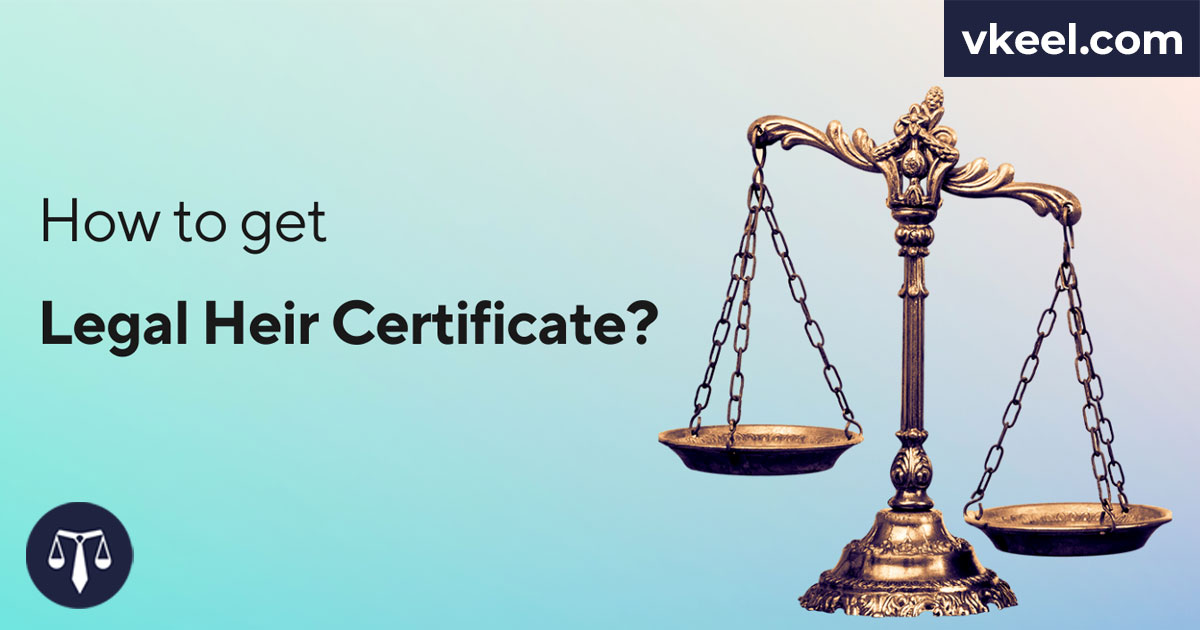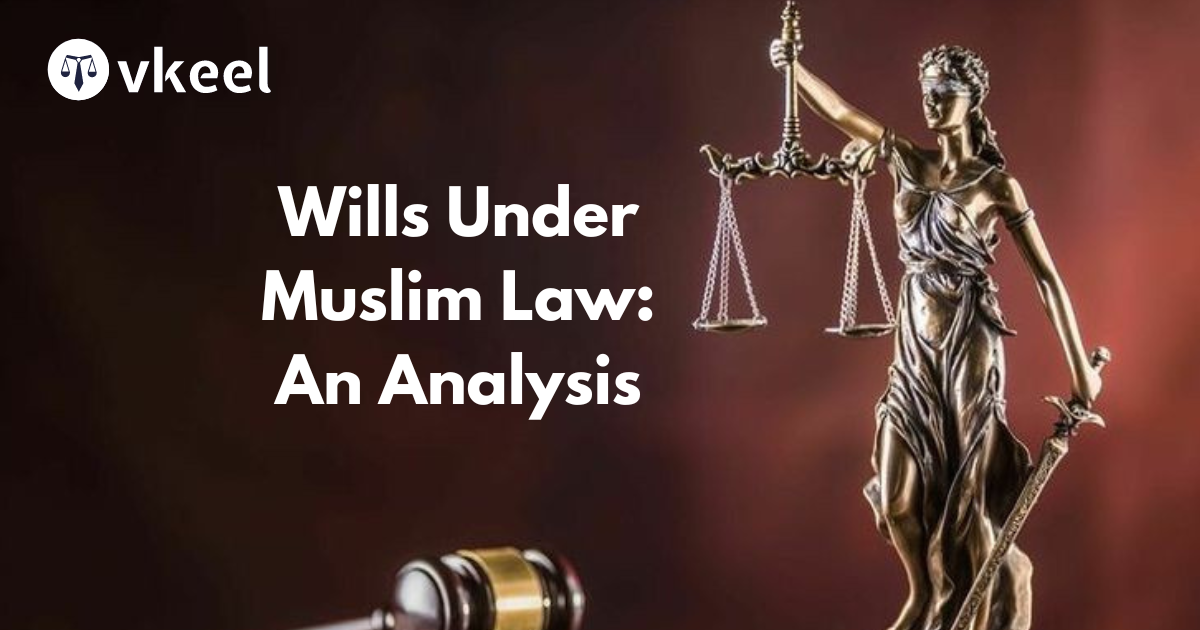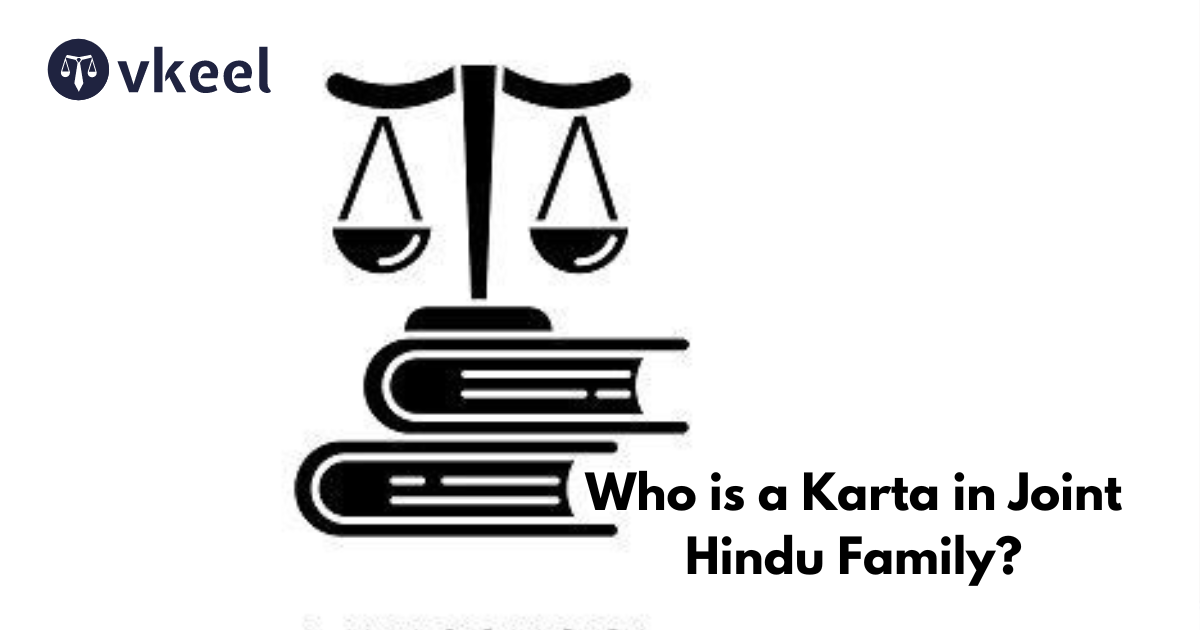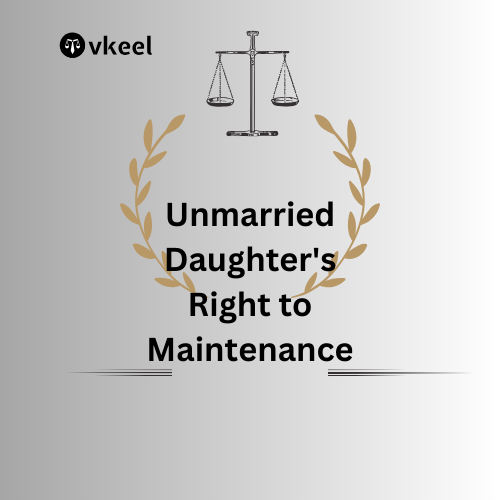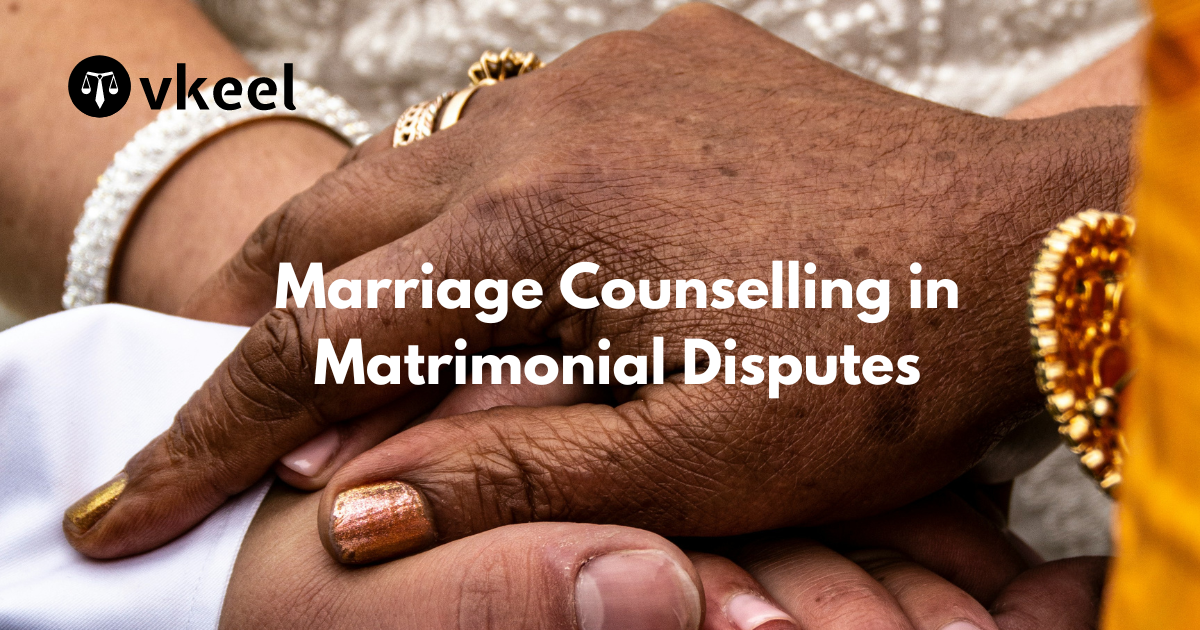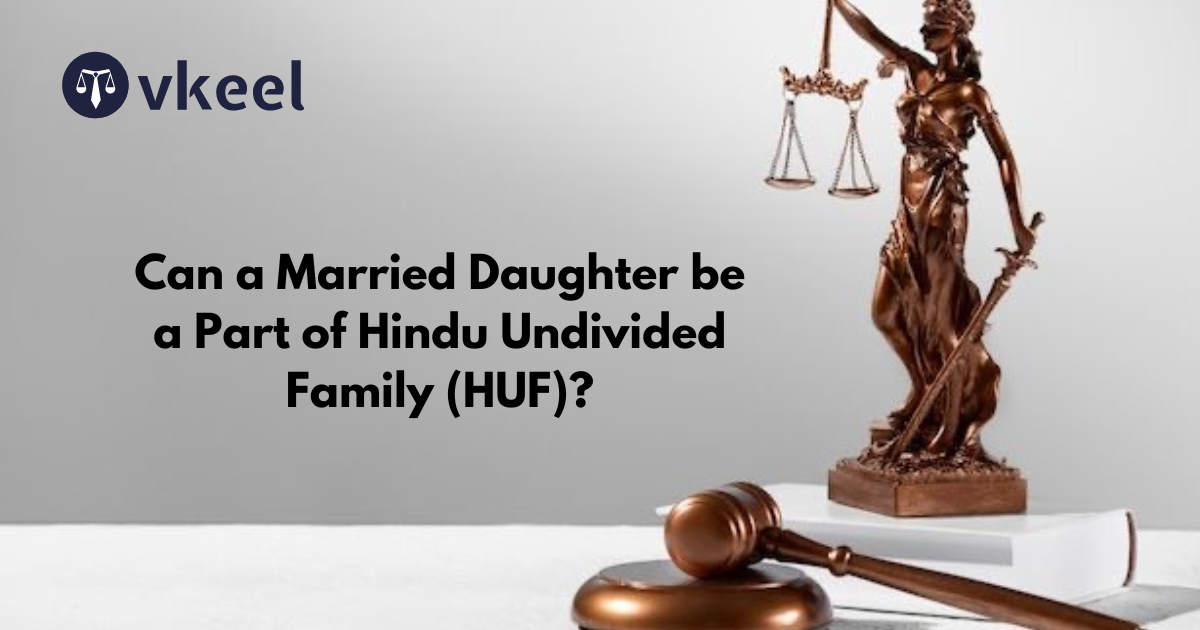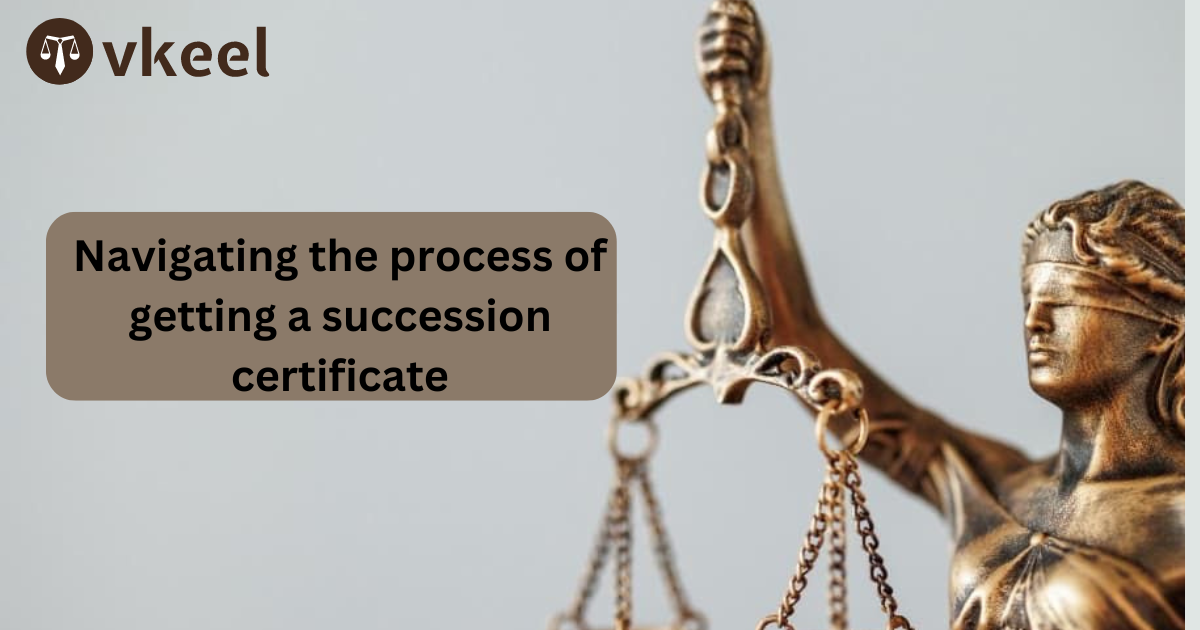How to get Legal Heir Certificate?
By Vkeel Team
Table of Contents
- Introduction
- What is a Legal Heir Certificate?
- How to File an Application for a Legal Heir Certificate?
- What is the Time Frame for Obtaining a Legal Heir Certificate?
- What Documents are Required to Obtain a Legal Heir Certificate?
- How to Resolve Disputes Regarding Legal Heir Certificates?
- What are the Benefits of Having a Legal Heir Certificate?
- Effect of the Legal Heir Certificate?
- Conclusion
Introduction
A legal heir certificate is an important document that is used to prove the legal heir of a deceased person. It is issued by the Tahsildar of the district and is used to transfer the assets of the deceased to the legal heir. This certificate is also used to claim the insurance amount of the deceased. In this article, we will discuss the process of obtaining a legal heir certificate. We will also discuss the documents required for the application and the procedure for obtaining the certificate.
What is a Legal Heir Certificate?
A Legal Heir Certificate is a document issued by a Tahsildar of the district that identifies the legal heirs of a deceased person. It is a legal document that is used to prove the legal rights of the heirs to the deceased person’s estate. The certificate is issued after the Tahsildar has determined the legal heirs of the deceased person. It is important to note that the certificate does not provide any rights to the heirs, but rather serves as proof of their legal rights. The certificate is typically used to transfer the deceased person’s assets to the legal heirs.
How to File an Application for a Legal Heir Certificate?
A Legal Heir Certificate is a document issued by the government that identifies the legal heirs of a deceased person. It is an important document for the legal heirs to prove their right to the deceased person’s assets. The process of filing an application for a Legal Heir Certificate varies from state to state. However, the following steps provide a general overview of the process.
Step 1: Gather the Necessary Documents
The first step in filing an application for a Legal Heir Certificate is to gather the necessary documents. These documents include the death certificate of the deceased, the legal heir’s identity proof, and proof of relationship with the deceased.
Step 2: Fill Out the Application Form
The next step is to fill out the application form. The application form is available at the local revenue office or online. The form requires information such as the name of the deceased, the legal heir’s name, and the relationship between the two.
Step 3: Submit the Application
Once the application form is filled out, it must be submitted to the local revenue office. Along with the application form, the documents mentioned in Step 1 must also be submitted.
Step 4: Pay the Fee
The final step is to pay the fee for the application. The fee varies from state to state and can be paid in cash or through online payment methods.
Once the application is submitted and the fee is paid, the legal heir will receive the Legal Heir Certificate within a few weeks. It is important to note that the process may take longer in some states.
What is the Time Frame for Obtaining a Legal Heir Certificate?
The time frame for obtaining a legal heir certificate varies depending on the jurisdiction. Generally, the process can take anywhere from a few weeks to one month. In some cases, the process may take longer due to the complexity of the case or if additional documents are required.
The first step in obtaining a legal heir certificate is to contact the office of the Tahsildar of the district. The office will provide information on the necessary documents and procedures that must be followed. Depending on the jurisdiction, they may require a death certificate, a will, and other documents. Once all the necessary documents are submitted, they will review them and issue a legal heir certificate.
In some cases, they may require additional information or documents before issuing the certificate. This may include a family tree, a list of assets, or other documents. Once all the necessary documents are submitted, they will review them and issue the certificate.
It is important to note that the time frame for obtaining a legal heir certificate may vary depending on the jurisdiction. It is best to contact the office of the Tahsildar of the district for more information on the specific requirements and time frame for obtaining a legal heir certificate.
What Documents are Required to Obtain a Legal Heir Certificate?
In order to obtain a legal heir certificate, certain documents are required. These documents include:
1. Death Certificate of the deceased: This document is necessary to prove that the deceased is no longer alive.
2. Succession Certificate: This document is issued by the Tahsildar of the district and is necessary to prove the legal heir’s right to the transfer of property or entitlement to benefits titled to the decedent.
3. Affidavit of Heirship: This document is necessary to prove that the legal heir is the rightful heir of the deceased.
4. Identity Proof: This document is necessary to prove the identity of the legal heir.
5. Address Proof: This document is necessary to prove the address of the legal heir.
6. Copy of the Will: This document is necessary to prove that the legal heir is the rightful heir of the deceased as per the will.
These documents are necessary to obtain a legal heir certificate. It is important to ensure that all the documents are valid and up-to-date.
How to Resolve Disputes Regarding Legal Heir Certificates?
Disputes regarding legal heir certificates can be a difficult and complex issue to resolve. A legal heir certificate is a document that is issued by the Tahsildar of the district to certify that a person is the legal heir of a deceased individual. It is important to note that the legal heir certificate is not the same as a will or a succession certificate.
When disputes arise regarding legal heir certificates, the first step is to contact the court that issued the certificate. The court will be able to provide information about the process for resolving the dispute. Depending on the nature of the dispute, the court may require the parties to submit additional documents or evidence to support their claims.
In some cases, the court may require the parties to attend a hearing to present their arguments. During the hearing, the court will consider the evidence presented by both parties and make a decision. The court may also appoint a mediator to help the parties reach an agreement.
If the parties are unable to reach an agreement, the court may order a trial. During the trial, the court will hear testimony from witnesses and consider evidence presented by both parties. The court will then make a decision based on the evidence presented.
It is important to note that the court’s decision is final and binding. Therefore, it is important to ensure that all parties involved in the dispute are aware of the court’s decision and abide by it.
In some cases, disputes regarding legal heir certificates can be resolved without the need for court intervention. In such cases, the parties may be able to reach an agreement through negotiation or mediation. If the parties are unable to reach an agreement, they may need to seek legal advice.
No matter how the dispute is resolved, it is important to ensure that all parties involved are aware of the outcome and abide by it. This will help to ensure that the dispute is resolved in a fair and equitable manner.
What are the Benefits of Having a Legal Heir Certificate?
Having a legal heir certificate is an important document that can provide a number of benefits to individuals and their families. A legal heir certificate is a document that identifies the legal heirs of a deceased person and outlines their rights to the deceased’s estate. This document is especially important for those who do not have a will or other estate planning documents in place.
The primary benefit of having a legal heir certificate is that it can help to ensure that the deceased’s assets are distributed according to their wishes. Without a legal heir certificate, the deceased’s assets may be distributed according to the laws of the state in which they resided. This could mean that the assets are not distributed in the way that the deceased intended. A legal heir certificate can help to ensure that the deceased’s wishes are respected and that their assets are distributed according to their wishes.
Another benefit of having a legal heir certificate is that it can help to avoid disputes between family members. Without a legal heir certificate, family members may disagree about who should receive the deceased’s assets. This can lead to costly and time-consuming disputes that can be avoided with a legal heir certificate.
Finally, having a legal heir certificate can help to ensure that the deceased’s assets are distributed in a timely manner. Without a legal heir certificate, the process of distributing the deceased’s assets can be delayed, which can cause financial hardship for the deceased’s family. A legal heir certificate can help to expedite the process and ensure that the deceased’s assets are distributed in a timely manner.
In summary, having a legal heir certificate can provide a number of benefits to individuals and their families. It can help to ensure that the deceased’s assets are distributed according to their wishes, avoid disputes between family members, and ensure that the deceased’s assets are distributed in a timely manner.
Effect of the Legal Heir Certificate?
The Legal Heir Certificate is an important document that is used to establish the legal heir of a deceased person. It is issued by the District Revenue Officer / Municipality Administrative Officer and is used to transfer property or entitlement to benefits titled to the decedent. The certificate is also used to transfer the title of the property to the legal heir.
The Legal Heir Certificate is an important document that has a significant effect on the legal heir’s rights and responsibilities. It is used to prove the legal heir’s right to inherit the deceased person’s property and to transfer the title of the property to the legal heir. The certificate also serves as a proof of the legal heir’s identity and establishes the legal heir’s right to manage the deceased person’s estate.
The Legal Heir Certificate also has an effect on the legal heir’s financial obligations. The certificate is used to determine the legal heir’s responsibility for any debts or liabilities that the deceased person may have left behind. The certificate also serves as a proof of the legal heir’s right to receive any assets or income that the deceased person may have left behind.
In conclusion, the Legal Heir Certificate is an important document that has a significant effect on the legal heir’s rights and responsibilities. It is used to prove the legal heir’s right to inherit the deceased person’s property and to transfer the title of the property to the legal heir. The certificate also serves as a proof of the legal heir’s identity and establishes the legal heir’s right to manage the deceased person’s estate. Furthermore, the certificate is used to determine the legal heir’s responsibility for any debts or liabilities that the deceased person may have left behind and to receive any assets or income that the deceased person may have left behind.
Conclusion
Getting a Legal Heir Certificate is an important step in ensuring that your assets are passed on to the right people after you pass away. It is important to understand the process and the requirements for obtaining a Legal Heir Certificate, as well as the documents that must be submitted. With the right information and guidance, you can easily obtain a Legal Heir Certificate and ensure that your assets are passed on to the right people.
Disclaimer:
The information provided in the article is for general informational purposes only, and is not intended to constitute legal advice or to be relied upon as a substitute for legal advice. Furthermore, any information contained in the article is not guaranteed to be current, complete or accurate. If you require legal advice or representation, you should contact an attorney or law firm directly. We are not responsible for any damages resulting from any reliance on the content of this website.

